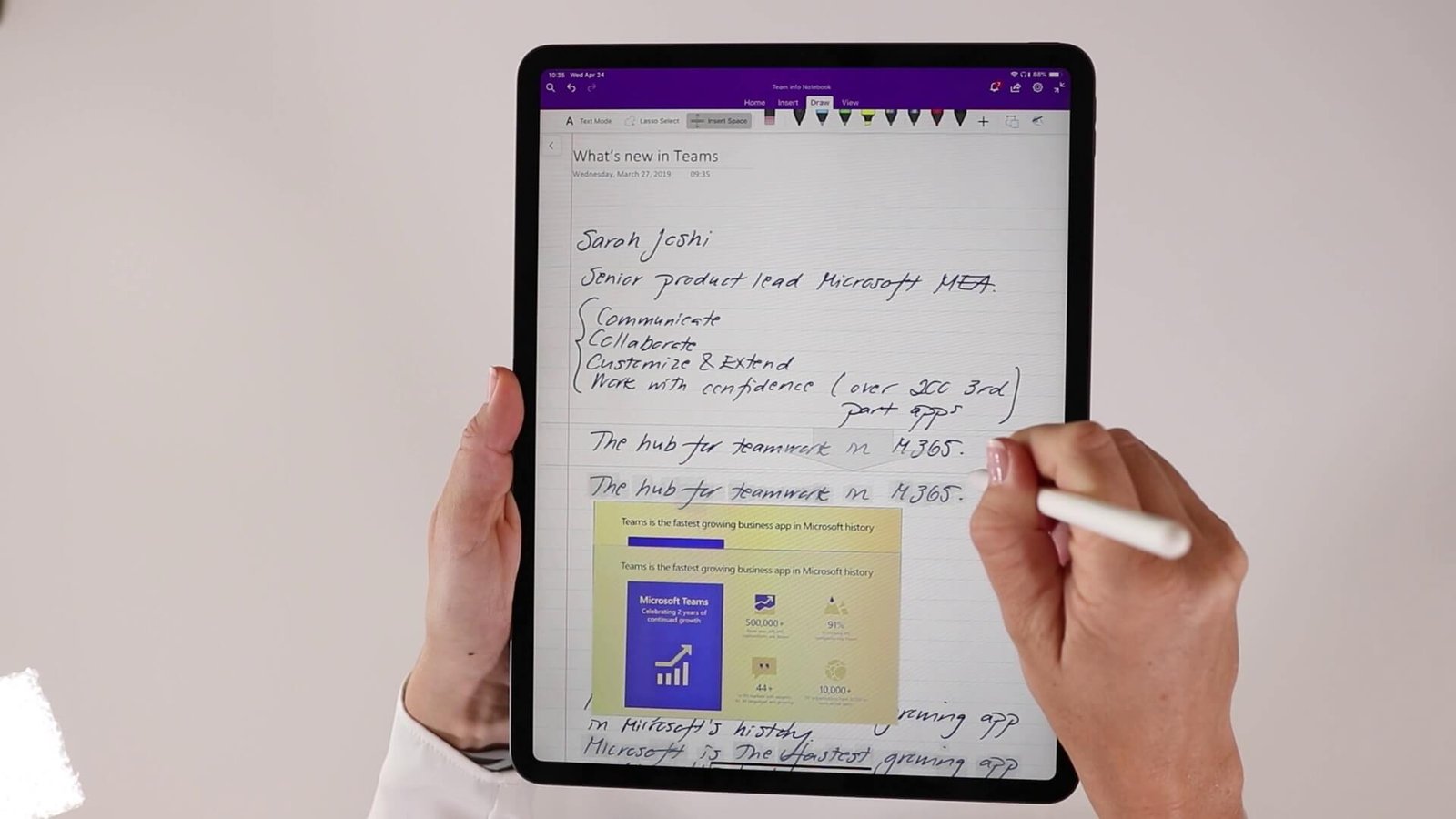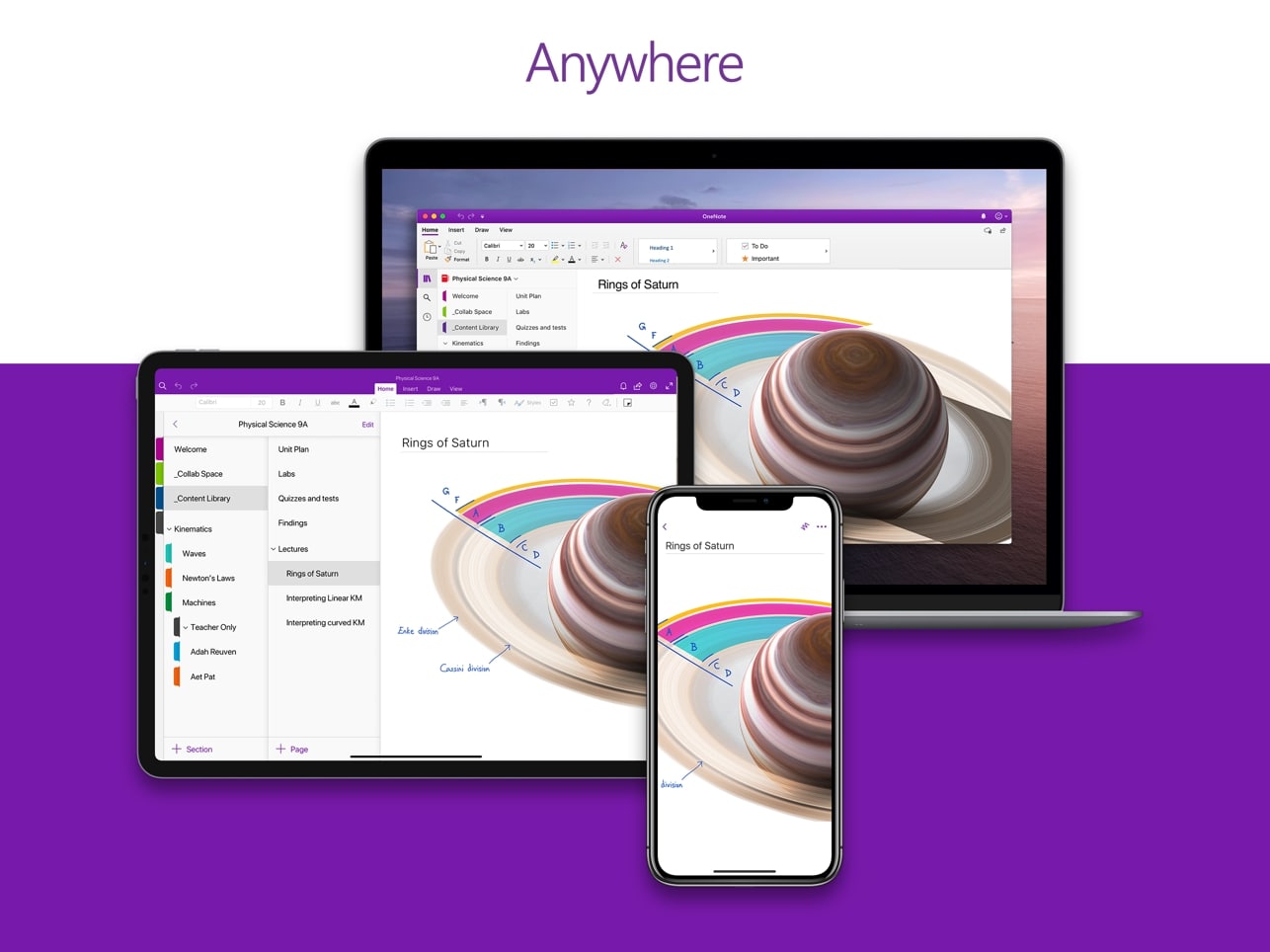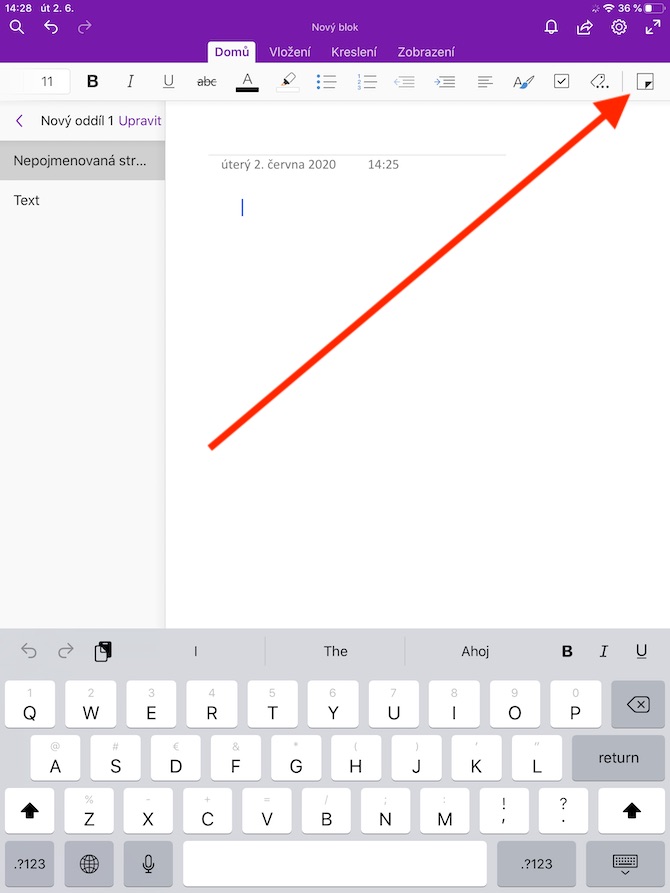


The scenario in Figure1 is an example of OneNote for iPad being used as a satellite to the full Windows OneNote 2010 client.

Use the icon set in the upper-right corner of the window to do the following (left to right in Figure1): Enter a search expression to search across all notebooks synchronized on the iPad.This is an example of a OneNote for iOS feature that I hope will appear in the next version of Windows OneNote as well it's very handy. View a list of recently used notes (called "Recents").View a list of unfiled notes (notes that have been captured but not yet moved to a notebook other than the default Personal notebook).Navigate to the home page, which displays a list of all notebooks synchronized to the iPad.Use the icon set in the lower-left corner of the window to do the following (left to right in Figure1): OneNote for iPad uses a default "Personal (Web)" notebook all other notebooks must be created on SkyDrive by using either OneNote 2010 or the OneNote Web App, and then synchronized to OneNote for iPad.įigure 1 OneNote for iPad trip-planning example. Users are required to have a Windows Live ID in order to use OneNote for iPad, as the application relies on Microsoft's Windows Live SkyDrive for notebook storage, synchronization, and sharing. Microsoft OneNote for iPad runs on iOS 4.3 or higher.

The next article in my OneNote series will provide a more extensive and critical review of OneNote for iPad. The rest of this article provides an overview of the capabilities of the initial release of OneNote for iPad. With the first release of OneNote for iPad, Microsoft has delivered a product that's useful primarily for people who use OneNote 2010 extensively on Windows PCs and use their iPads as satellite clients to their PCs. Unfortunately, in my opinion, Microsoft evidently opted for the latter approach (despite leaving "Mobile" out of the application name).


 0 kommentar(er)
0 kommentar(er)
